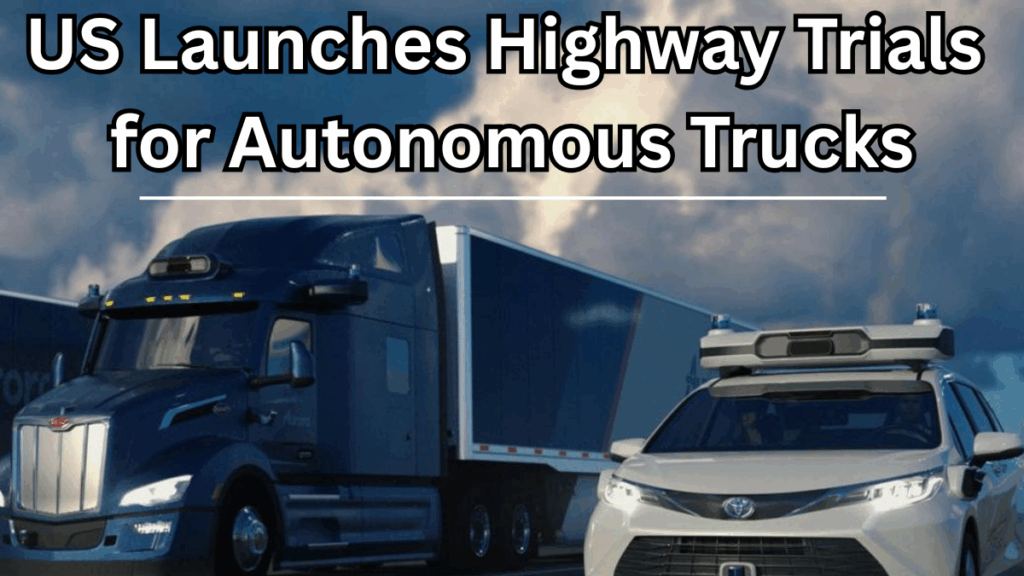The United States is stepping boldly into the future of transportation with the launch of autonomous truck trials in the US. These highway trials mark a pivotal moment in the logistics industry, where self-driving trucks are tested under real-world conditions to revolutionize how goods move across the country.

What Are Autonomous Truck Trials in the US?
Autonomous truck trials refer to the testing phase where trucks equipped with advanced self-driving technology operate on highways without a human driver actively controlling the vehicle. These trials are essential for ensuring safety, efficiency, and regulatory compliance before widespread deployment.
-
Goal: To evaluate the performance and safety of self-driving trucks on public roads.
-
Scope: Conducted across multiple states on major highways.
-
Technology: Utilizes sensors, AI, and advanced navigation systems to enable trucks to drive autonomously.
Why Are Self-Driving Trucks a Game-Changer for Logistics?
The logistics sector is the backbone of the economy, responsible for delivering goods ranging from daily essentials to industrial equipment. Incorporating self-driving trucks into logistics can transform the industry in several ways:
| Benefits of Autonomous Trucks in Logistics | Details |
|---|---|
| Increased Efficiency | Continuous driving reduces delivery times. |
| Cost Savings | Lower fuel consumption and reduced labor costs. |
| Safety Improvements | Advanced sensors reduce human error-related accidents. |
| Reduced Driver Shortage Impact | Addresses the shortage of qualified truck drivers. |
| Environmental Impact | Optimized driving patterns cut emissions. |
How Are These Trials Conducted?
The autonomous truck trials in the US are carefully monitored and involve collaboration between technology developers, logistics companies, and government regulators. Here’s what the process typically looks like:
-
Trucks equipped with self-driving technology are deployed on specific highway routes.
-
A safety driver is onboard to intervene if necessary.
-
Data on vehicle performance, traffic interactions, and safety incidents are collected.
-
Trials span different weather conditions and traffic scenarios to ensure robustness.
Innovation Steering the Future
Innovation in self-driving technology is the heart of these trials. Engineers continuously improve AI algorithms, sensor accuracy, and vehicle-to-vehicle communication systems. This innovation not only pushes the boundaries of what’s possible but also promises safer, more reliable freight transport.
FAQs
1. What is the main purpose of autonomous truck trials?
The trials aim to test and validate the safety, reliability, and efficiency of self-driving trucks on public highways before they become a regular part of logistics operations.
2. Are these self-driving trucks fully autonomous?
Currently, most trials involve trucks operating under supervised conditions with a safety driver present, ensuring quick human intervention if needed.
3. How will autonomous trucks impact truck drivers?
While automation may reduce the demand for long-haul driving jobs, it will create new roles focused on monitoring, managing, and maintaining autonomous fleets.
4. What challenges do autonomous truck trials face?
Challenges include regulatory hurdles, technology reliability in complex traffic situations, and public acceptance of self-driving vehicles on highways.
Final Thoughts
The launch of autonomous truck trials in the US is a significant milestone in the intersection of innovation and logistics. As self-driving technology matures, these trials will pave the way for a safer, more efficient, and sustainable transportation future. For everyone involved — from tech developers to everyday consumers — this represents an exciting new chapter on the road ahead.
Click here to learn more
